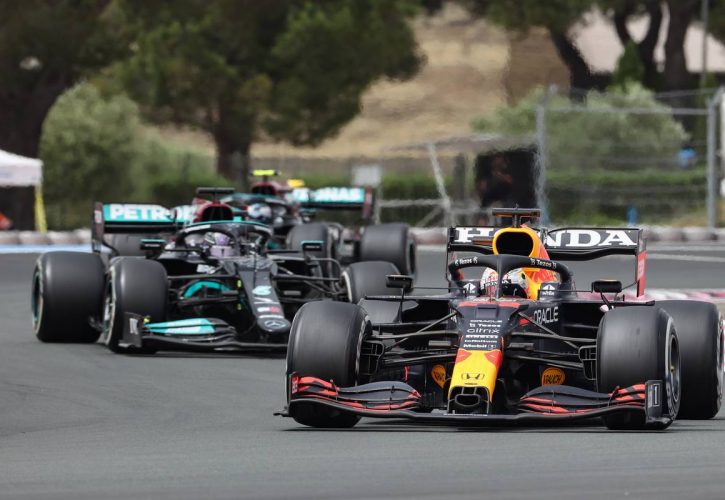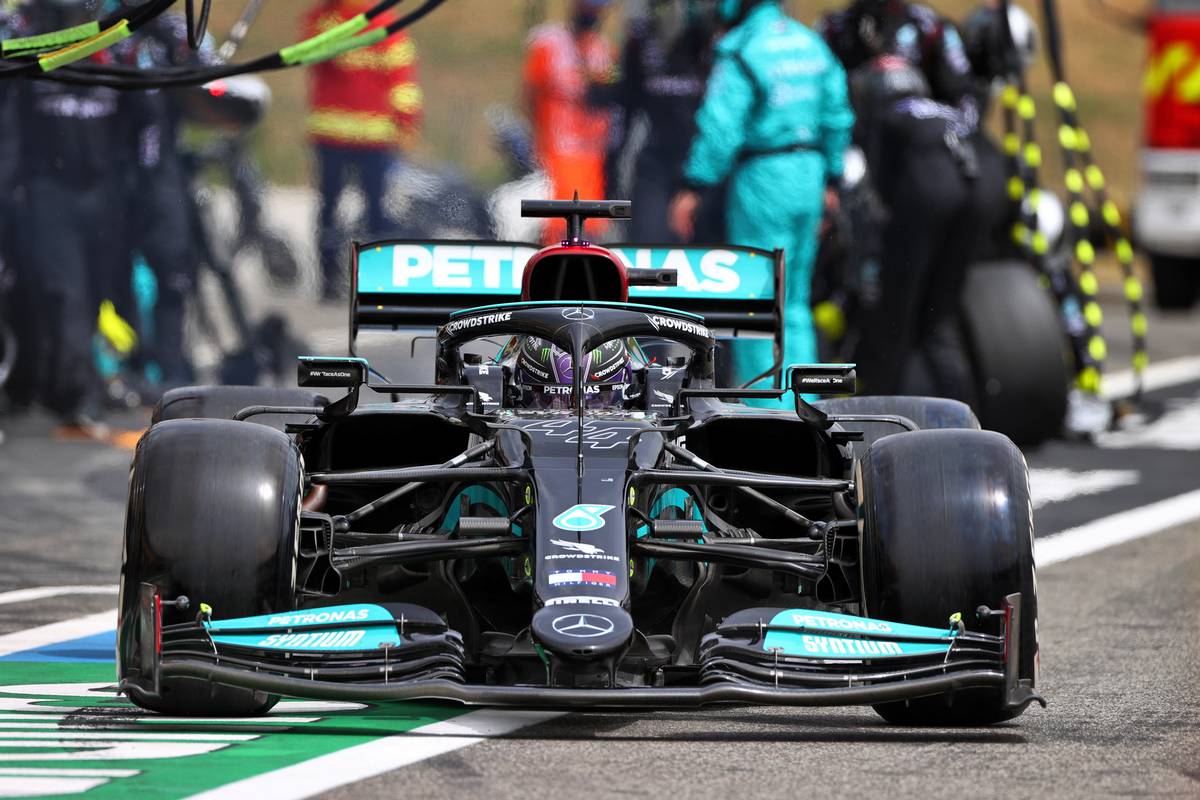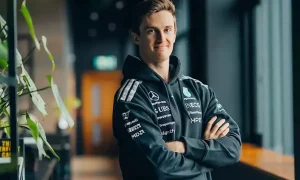
Mercedes struggled to comprehend after Sunday's French Grand Prix how its calculation model had underestimated Max Verstappen's ability to undercut Lewis Hamilton early on in the race.
Hamilton had seized the lead from Verstappen on the opening lap after the Red Bull driver had briefly left the track at the second corner.
Verstappen was among the first drivers to pit for a medium to hard tyre swap. Hamilton, who pressed on as the Dutchman stopped to build a gap, followed suit a lap later.
But much to the Mercedes camp's surprise, the Briton rejoined the track behind the Red Bull driver.
While Verstappen had executed a near perfect out lap on the hard rubber, Mercedes still believed that it had just the right time in hand to allow Hamilton to remain ahead. But ultimately, its numbers didn't add up.

"We thought when we had just over three seconds to Max, we were safe from the undercut, and that wasn't the case," explained Mercedes engineering director Andrew Shovlin.
"Even now, we don't fully understand why our models were telling us that we would have been OK. So clearly there's something we need to go off and understand there."
Even considering Verstappen's impressive out lap, there remained half a second of lost time that Mercedes could not account for.
"The hard tyre was good, and it was it was good out of the box," Shovlin added. "But that's the bit we still need to go through because we haven't yet understood quite why we lost the position.
"We can account for about two and a half seconds of the three seconds. But it's something that we need to dig into the fine detail to understand how we were undercut from so far back because we weren't expecting that."
Although Mercedes had pitted Valtteri Bottas early – on lap 17 – due to a tyre vibration issue, it declined to bring in Hamilton a lap later, fearing the early stop would jeopardize the latter's ability to run to the end on the hard tyre.
"It was uncomfortably early to go to the end, which, I think as the race played out, you saw that that was the case," Shovlin said. "And also the concern on Valtteri’s car was that he was getting an increasing vibration that was getting worse and worse every lap, that was starting to get to levels where we will box the car for reliability concerns.
"So really, the focus was on making sure that we didn't have an issue on track with him, so that was why we did it.
"In reality, Valtteri's stop triggered, the pit stops at the front of the grid. And that was what drove us to having to do a very long, long stint with Lewis."
Gallery: The beautiful wives and girlfriends of F1 drivers
Keep up to date with all the F1 news via Facebook and Twitter






